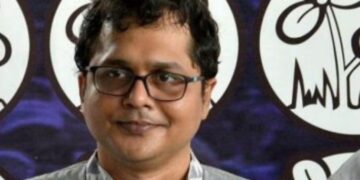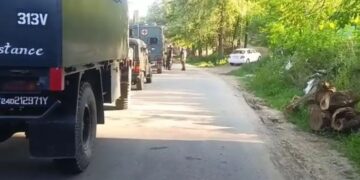KEY POINTS
- AP HC (2022): Converts to Christianity lose SC status
- SC (2024): No SC benefits for those raised Christian, even if later claim Hindu status
- Vemulapalem: SC certificates cancelled for a Christian family running illegal churches
The Andhra Pradesh High Court has ruled that if someone from a Scheduled Caste (SC) converts to another religion, like Christianity or Islam, they no longer get the benefits meant for SCs, including protection under the SC/ST (Prevention of Atrocities) Act. This decision came during a case involving Chintada Anand, a Christian pastor from Guntur. In 2021, he filed a complaint under the SC/ST Act, saying that Akkala Ramireddy and others had discriminated against him because of his caste. But Ramireddy challenged the complaint, saying that Anand had become a Christian many years ago and so shouldn’t get SC protections anymore.
Ramireddy’s lawyer referred to a law from 1950, which says that people lose their SC status if they convert to a religion other than Hinduism (or, in later updates, Sikhism or Buddhism). Justice Harinath agreed with this, explaining that Christianity doesn’t have a caste system like Hinduism does. So, if someone converts, they no longer face caste discrimination in the same way and are not covered by the SC/ST Act anymore—even if they have an SC certificate.
Anand’s lawyer argued that he still had a valid SC certificate, but the court said that just having the certificate isn’t enough. What matters is the person’s current religion. The High Court also criticised the police for not properly checking the facts before filing the case. The court said that Anand misused the SC/ST Act by filing a false complaint. Witnesses confirmed that Anand had been working as a pastor for many years, which means he had clearly converted to Christianity.
The High Court dismissed the case against Ramireddy and the others. The court said Anand’s complaint had no legal value since he was no longer eligible for SC protections.
SC Rules Against Religious Conversion For Quota Benefits
On November 26, 2024, the Supreme Court (Judges Pankaj Mithal and R. Mahadevan) gave a decision in a case filed by C. Selvarani. The court agreed with an earlier Madras High Court ruling from January 24, 2024, which said that Selvarani could not get a Scheduled Caste (SC) certificate.
Selvarani was born to a Hindu father and a Christian mother, and she was baptised as a Christian soon after birth. But later, she said she was a Hindu and applied for an SC certificate to get a government job (Upper Division Clerk) in Puducherry in 2015.
The court said that since she was raised as a Christian, she cannot claim SC status, even if she later says she’s a Hindu just to get job benefits.
Government Cancels SC Certificates Of Christian Family In Vemulapalem, Andhra Pradesh
The Andhra Pradesh government has cancelled the Scheduled Caste (SC) certificates of T. Lakshmana Rao and his family. This happened after it was confirmed that they had converted to Christianity. This action came after villagers from Vemulapalem, in Gudur Mandal, SPS Nellore District, filed a complaint. They said the family was running an illegal church.
Tiranam Swati Kumar and his whole family had converted to Christianity and started following Christian customs. They were also running unauthorised churches in nearby villages. They even turned their house into a church and were holding full-day prayer meetings every day. Because of all this, the government decided they were no longer eligible for SC benefits, so their SC certificates were cancelled.
Andhra Pradesh High Court Supports Firing Of Temple Employee Who Converted To Christianity
The Andhra Pradesh High Court agreed with the decision of the Sri Bramarambha Mallikarjuna Swamy Temple to remove an employee who had converted to Christianity. The court said that a person working in a Hindu temple must be a Hindu. If they stop following the Hindu religion, they can no longer work there.
This rule is part of the AP Endowments Rules, 2000 (Rule 3), which says: Anyone working in a temple or religious institution must be a Hindu, and if they stop being a Hindu, they lose their job.
Madras High Court: No SC/ST Compensation for Converted Christian in Police Torture Case
The Madurai Bench of the Madras High Court said it cannot order compensation under the SC/ST Act for T. Arun Kumar, a victim in the Ambasamudram police torture case, because he is a converted Christian and not a Scheduled Caste (SC) or Scheduled Tribe (ST) member. In his petition, Kumar said he was illegally detained at the Ambasamudram police station, where the police officer Balveer Singh (now suspended) pulled out his teeth and beat him, causing serious injuries. He asked for compensation under the SC/ST Act, saying he belongs to the SC community.
However, the state lawyer (Additional Advocate General) told the court that Kumar had converted to Christianity and is not an SC or ST, so he cannot receive compensation under that law. Justice D. Nagarjun agreed and said that since Kumar is not legally considered an SC, the SC/ST Act does not apply, and the petition was dismissed.
Andhra Pradesh High Court: SC Status Lost After Converting To Christianity
In the case of Dara Mohan Rao vs The State of Andhra Pradesh (decided on 28 April 2022), the Andhra Pradesh High Court ruled that people who convert to Christianity lose their Scheduled Caste (SC) status. The court based its decision on the Constitution (Scheduled Castes) Order, 1950, which says that only people who follow Hinduism, Sikhism, or Buddhism can be recognized as SC.
In this case, the petitioners belonged to the Hindu Mala (SC) community but converted to Christianity after getting government jobs. After their conversion, their caste certificates were changed to Christian Mala, which is part of the Backward Classes – Group C (BC-C), not SC.
Soosai v. Union Of India: SC Benefits Denied After Faith Shift Sparks Legal Debate
Soosai, who belongs to the Adi-Dravida community (a recognized Scheduled Caste), converted to Christianity. After his conversion, he was denied government benefits meant for SCs. One of the benefits he was denied was the free allotment of bunks (workspaces) for cobblers. The government said that because he had become a Christian, he no longer qualified as an SC under the law.
Soosai argued that the Constitution (Scheduled Castes) Order, 1950, which says that only Hindus, Sikhs, and Buddhists can be recognized as Scheduled Castes (SC), violated his rights. He claimed that this rule went against Article 14 (right to equality), Article 15 (no discrimination), and Article 25 (freedom of religion) of the Indian Constitution. However, the Supreme Court supported the law and said that SC status is only for Hindus, Sikhs, and Buddhists. The court ruled that because Soosai converted to Christianity, he could no longer claim SC status.
Reclaiming Caste: The Legal Battle for Reversion to Hinduism in S. Anbalagan v. B. Devarajan
In the case of S. Anbalagan v. B. Devarajan (1983), the Supreme Court looked at whether a person who was born to Christian parents could claim Scheduled Caste (SC) status if they returned to Hinduism. The court ruled that if a person reconverts to Hinduism, they can regain their original caste status (as SC), but only if they are accepted by the Hindu community and follow its customs. In this case, B. Devarajan, who was elected to the Lok Sabha from an SC-reserved constituency, had his election challenged. The challenge was based on the argument that he was born a Christian and therefore should not be eligible for SC status.

















Comments